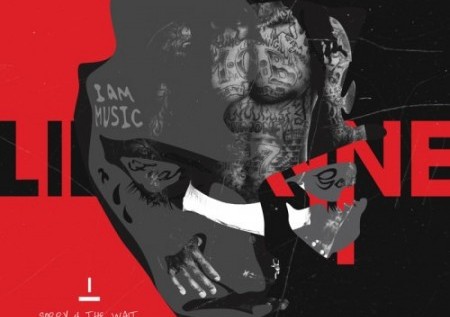Why Do They Call It Black Friday?
Black Friday as a term has been used in multiple contexts, going back to the nineteenth century, where it was associated with a financial crisis in 1869 in the United States. The earliest known reference to “Black Friday” to refer to the day after Thanksgiving was made in a 1966 publication on the day’s significance in Philadelphia:
JANUARY 1966 — “Black Friday” is the name which the Philadelphia Police Department has given to the Friday following Thanksgiving Day. It is not a term of endearment to them. “Black Friday” officially opens the Christmas shopping season in center city, and it usually brings massive traffic jams and over-crowded sidewalks as the downtown stores are mobbed from opening to closing.
The term Black Friday began to get wider exposure around 1975, as shown by two newspaper articles from November 29, 1975, both datelined Philadelphia. The first reference is in an article entitled “Army vs. Navy: A Dimming Splendor,” in The New York Times:
Philadelphia police and bus drivers call it “Black Friday” – that day each year between Thanksgiving Day and the Army–Navy Game. It is the busiest shopping and traffic day of the year in the Bicentennial City as the Christmas list is checked off and the Eastern college football season nears conclusion.
The derivation is also clear in an Associated Press article entitled “Folks on Buying Spree Despite Down Economy,” which ran in the Titusville Herald on the same day:
Store aisles were jammed. Escalators were nonstop people. It was the first day of the Christmas shopping season and despite the economy, folks here went on a buying spree. … “That’s why the bus drivers and cab drivers call today ‘Black Friday,'” a sales manager at Gimbels said as she watched a traffic cop trying to control a crowd of jaywalkers. “They think in terms of headaches it gives them.”
The term’s spread was gradual, however, and in 1985 the Philadelphia Inquirer reported that retailers in Cincinnati and Los Angeles were still unaware of the term.
Many merchants objected to the use of a negative term to refer to one of the most important shopping days in the year. By the early 1980s, an alternative theory began to be circulated: that retailers traditionally operated at a financial loss for most of the year (January through November) and made their profit during the holiday season, beginning on the day after Thanksgiving. When this would be recorded in the financial records, once-common accounting practices would use red ink to show negative amounts and black ink to show positive amounts. Black Friday, under this theory, is the beginning of the period where retailers would no longer have losses (the red) and instead take in the year’s profits (the black). The earliest known use, which like the 1966 example above was found by Bonnie Taylor-Blake of the American Dialect Society, is from 1981, again from Philadelphia, and presents the “black ink” theory as one of several competing possibilities:
If the day is the year’s biggest for retailers, why is it called Black Friday? Because it is a day retailers make profits — black ink, said Grace McFeeley of Cherry Hill Mall. “I think it came from the media,” said William Timmons of Strawbridge & Clothier. “It’s the employees, we’re the ones who call it Black Friday,” said Belle Stephens of Moorestown Mall. “We work extra hard. It’s a long hard day for the employees.”
The Christmas shopping season is of enormous importance to American retailers and, while most retailers intend to and actually do make profits during every quarter of the year, some retailers are so dependent on the Christmas shopping season that the quarter including Christmas produces all the year’s profits and compensates for losses from other quarters.
That the day after Thanksgiving is the “official” start of the holiday shopping season may be linked together with the idea of Santa Claus parades. Parades celebrating Thanksgiving often include an appearance by Santa at the end of the parade, with the idea that ‘Santa has arrived’ or ‘Santa is just around the corner’.
In the late 19th century and early 20th century, many Santa parades or Thanksgiving Day parades were sponsored by department stores. These include the Toronto Santa Claus Parade, in Canada, sponsored by Eaton’s, and the Macy’s Thanksgiving Day Parade sponsored by Macy’s. Department stores would use the parades to launch a big advertising push. Eventually it just became an unwritten rule that no store would try doing Christmas advertising before the parade was over. Therefore, the day after Thanksgiving became the day when the shopping season officially started.
Later on, the fact that this marked the official start of the shopping season led to controversy. In 1939, retail shops would have liked to have a longer shopping season, but no store wanted to break with tradition and be the one to start advertising before Thanksgiving. President Franklin D. Roosevelt moved the date for Thanksgiving one week earlier, leading to much anger by the public who wound up having to change holiday plans. Some even refused the change, resulting in the U.S. citizens celebrating Thanksgiving on two separate days. Some started referring to the change as Franksgiving.
In 2011, inspired by the Occupy Wall Street movement, there is currently a boycott against Black Friday known as Stop Black Friday or Occupy Black Friday. The movement calls for people to boycott publicly traded and large retail stores with a history of political donations to show economic solidarity and to force the lobby to back the candidates that they want.





#IAmNotARapper: Why Do They Call It Black Friday? http://t.co/cSjWjQ5s